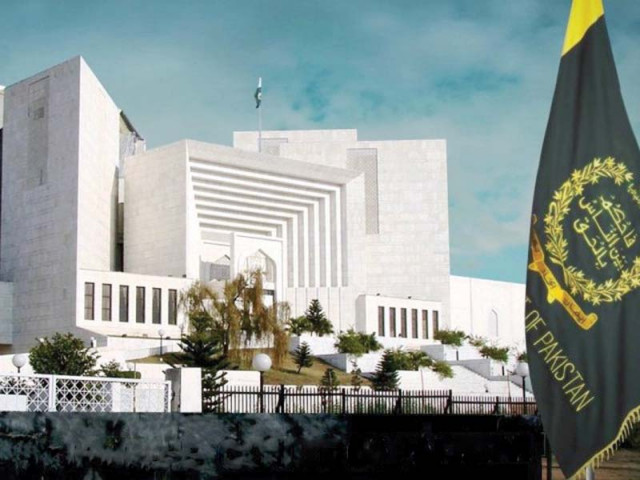Top court: Guidelines issued on picking SPSC chief, members
SC notes absence of formal selection mechanism

PHOTO: EXPRESS
Justice Amir Hani Muslim penned a nine-page order in a suo motu case against illegal appointments of the chairman and other SPSC members.
The order stated that the discretion of the competent authority in making the appointments of the commission needed to be framed under Section 10 of the Sindh Public Service Commission Act of 1989, which suggested the formation of a high-powered permanent committee for examining service profiles of the Chairman and SPSC members, who should be selected under Section 3(3) of the Act and other prerequisite standards.
The court observed that the high-powered committee needed to scrutinise private sector persons before selecting a member.
The bench noted that the commission, created under Article 242 of the Constitution, was a constitutional body responsible for public sector recruitment. The Act empowered the Sindh government to appoint the chairman and other SPSC members, for which no formal selection mechanism was delineated.
Under Section 10 of the Act, the provincial government should have formulated rules for selecting the chairman and other SPSC members, but till date no such rules have been framed.
The order stated that Section 10, also empowering the provincial government to frame rules for reaching out to such a group of eminent personalities who would otherwise not apply for these posts.
“The Chairman/Members of this constitutional body, who enjoy constitutional protection, need to be selected from among noble individuals possessing incomparable competence … unblemished track record, impeccable integrity and unquestionable impartiality. They should be persons who can be entrusted with the responsibility of selecting the most deserving candidates who will be holding key positions in the public sector a decade down the path.”
The court stated that rules needed to be framed in a manner where the selection to these posts should be transparent and confined to persons with integrity and honesty.
The rules, the order stated, should further provide that the proposed appointee has a clean service record throughout his career.
“We have also noticed the controversy recently generated by the examinations/interviews and recommendations undertaken by the Commission headed by the Chairman, namely Muhammad Saleem Bhanour, which was talk of the town,” stated the order.
After scanning service profiles of all respondents, the court observed that appointments of two of the members, Saindad Khan Solangi and Ghulam Shabbir Shaikh, had been made in accordance with the provisions of Section 3(3) of the Act.
But, Muhammad Hanif Pathan, appointed as a Member, did “not qualify the eligibility criteria as laid down in Sub-Section 4 of Section 3 (ibid)”.
“Contrary to the requirements stipulated in the said sub-section, he is not from the private sector. His experience is based on his 28 years (of) service in the PIA, which is a public sector organization.”
Farooq H Naek, the counsel for respondents stated that he was instructed not to contest the case of Ashiq Ali Memon, one of the members of the commission, and that Ashiq Ali would immediately tender resignation.
“On tendering the resignation, the competent authority shall forthwith accept it test of ‘eminent person’, as provided by Section 3 (4) of the Act. We, therefore, hold that the appointment of Muhammad Hanif Pathan as a Member of the Commission was not made in conformity with the provisions of Section 3 (4) of the Act.”
The court stated that Sindh’s “advocate-general and the counsel representing some of the recommendees shall make their submissions on the next date and appropriate orders shall be passed after hearing them”.
The case will again be taken up after one week.
Published in The Express Tribune, January 7th, 2017.



















COMMENTS
Comments are moderated and generally will be posted if they are on-topic and not abusive.
For more information, please see our Comments FAQ